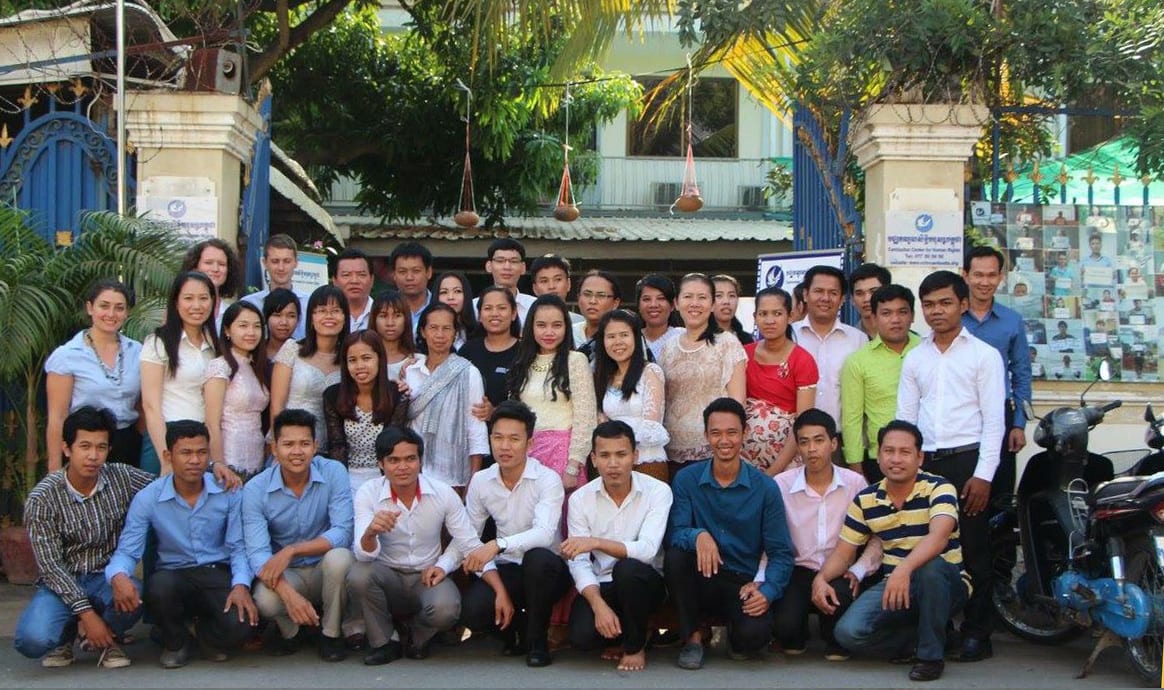IFEX strongly condemns the recent remarks of Cambodian Prime Minister Hun Sen calling for the Ministry of Interior to investigate and potentially shut down valued IFEX member the Cambodian Center for Human Rights (CCHR).
IFEX, the global network of 119 organisations working to promote and defend freedom of expression and information worldwide, strongly and unequivocally condemns the recent remarks of Cambodian Prime Minister Hun Sen calling for the Ministry of Interior to investigate and potentially shut down valued IFEX member the Cambodian Center for Human Rights (CCHR) over allegations questioning their neutrality.
The order follows the politically motivated dissolution of the largest opposition party, the Cambodia National Rescue Party (CNRP), and the imprisonment of one of its leaders, Kem Sokha, on charges of treason. Sokha founded CCHR in 2002 and resigned from the organisation in 2007, before founding the Human Rights Party. CCHR has gone on to become one of the most prominent and well-respected human rights organisations, not only in Cambodia, but the entire ASEAN region.
CCHR has always maintained a strict policy of independence and non-partisanship, with a mandate to uphold the rights of all Cambodians, regardless of their political association, and in accordance with protections guaranteed under both Cambodian and international law.
CCHR’s commitment to impartiality and universal respect for human rights has been a defining characteristic of its work since first joining the IFEX network in 2011. Indeed, independence from any political party or entity is a basic requirement for all groups that seek IFEX membership. As IFEX Executive Director, Annie Game warns, the allegations that CCHR “follows foreigners” is reminiscent of attacks against critical voices in a growing number of countries.
“The accusations against our colleagues at CCHR are part of a broad and insidious global trend of discrediting the legitimate work of groups promoting freedom of expression for all, often through the use of laws designed to limit, rather than, enable, space for civil society to flourish. The closure of such a principled and dedicated group as CCHR would be devastating for the safeguarding of Cambodians’ rights at a time when they are under increasing threat, and would irrevocably add to the climate of censorship that has taken hold. Considered alongside other important voices that have been silenced, such a brazen action would signal to the world that Cambodia’s stated support for free expression and association is an empty platitude.”
The recent action against CCHR is situated within a prolonged and escalating crackdown on democratic practices and civic space in the country. In recent months, the Cambodian government has forced the closure of media outlets, radio stations, and non-profit organisations. They have imprisoned activists such as five Cambodian Human Rights and Development Association (ADHOC) staff members, as well as land rights defender Tep Vanny. Most recently, two former journalists with Radio Free Asia (RFA), Uon Chhin and Yeang Sothearin, were arrested and charged with ‘espionage’ for allegedly attempting to report for RFA. On 15 September, RFA voluntarily shut its Phnom Penh bureau, citing the increasingly harsh climate for freedom of expression and the government’s closure of multiple radio stations as the reason. The pair face up to 15 years in prison, despite the fact that RFA was never banned or outlawed in Cambodia. The 2016 killing of the prolific political commentator Kem Ley, and the subsequent unanswered questions about the motives and masterminds behind his murder, has also had a profound impact on political discourse.
With the upcoming national election in 2018, these measures can only be seen as a concerted effort to eliminate any monitoring of and reporting on the government’s obligations to uphold the rights of Cambodian citizens, and to silence any accompanying criticisms.
In accordance with international standards ratified by the Cambodian Government, including the rights to freedom of expression and association enshrined in the International Covenant on Civil and Political Rights, and Articles 41 and 42 of Cambodia’s own Constitution, we call on the government to drop its baseless investigation against CCHR and allow them to continue their legitimate human rights work free from interference. If an investigation does take place, we urge the government to abide by all standards of due process and ensure that the investigation is both impartial and transparent, as we are confident that this would clear CCHR of any wrongdoing.
Furthermore, we call on the international community, including the United Nations, rights groups, donors and trade partners to speak out on behalf of CCHR and in defense of the principles of open and pluralistic democratic debate, which the Hun Sen government seeks to diminish through its continued attacks on groups that promote and protect these values.
Sincerely,
The closure of such a principled and dedicated group as CCHR would be devastating for the safeguarding of Cambodians’ rights at a time when they are under increasing threat, and would irrevocably add to the climate of censorship that has taken hold.




